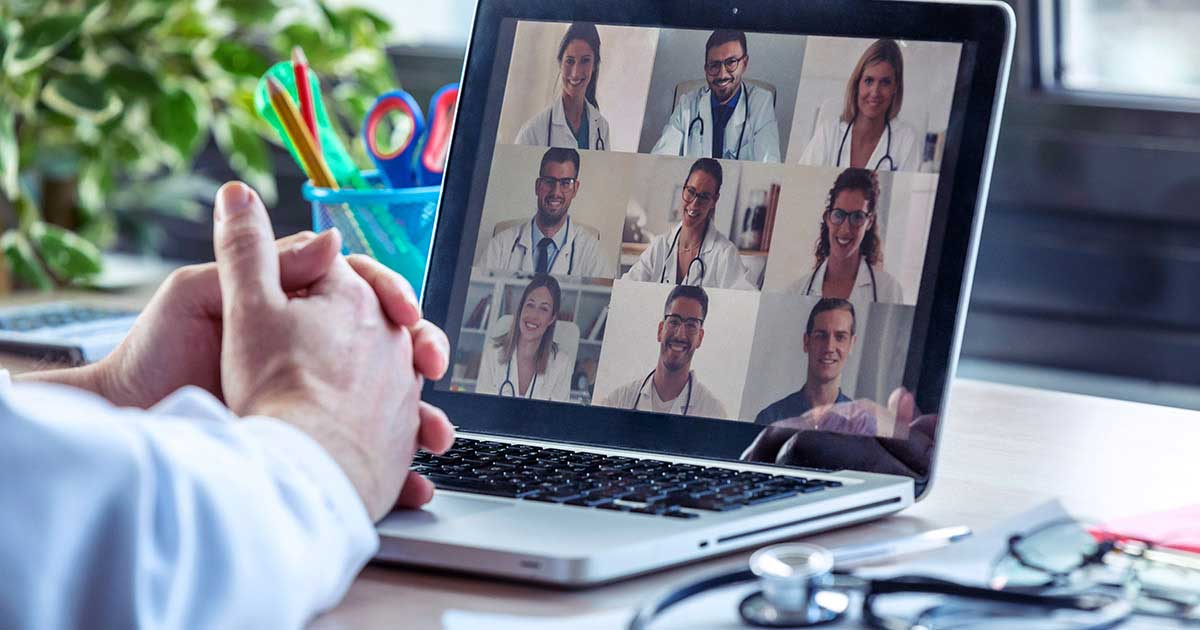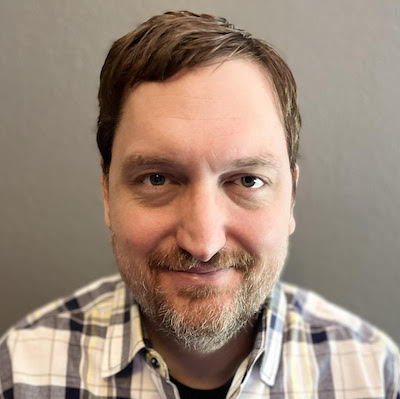Congresses. Conventions. Advisory board meetings. Investigator meetings. Product launches. Sales and marketing events.
The range of what many of us lump under the umbrella of “medical meetings” is quite wide, according to Taya Paige, CMM, CIS, HMCC, strategic advisor for ITA Group and chair of the MPI Medical & Healthcare Professionals community. And this sector of the meeting and event industry was, of course, hit hard by the COVID-19 pandemic.

“Most life sciences and medtech companies have canceled meetings through Q2 2021,” Paige says. “Many organizations made the call to cancel their 2020 and 2021 Q1 meetings early on in the pandemic and worked very closely with their partners and suppliers to mitigate further disruption to their programs. The focus moved to virtual meeting strategies, innovation for engaging remote audiences and measuring the engagement through analytics.
“Some organizations are still waiting to re-book until they have a better idea of what the next normal will look like. Others are actively considering innovative strategies and safe and healthy protocols for returning to in-person and or hybrid meetings.”
Though Paige believes traveling and meeting attendance for the sector will pick up in Q3, she says the landscape of medical meetings will be forever changed by the pandemic.
“I don’t think it’s ever going to go back to the way it was in 2019,” she says. “Organizations will need to build a strategy for how they plan to return to in-person meetings. They will also need to define what a hybrid approach means for them. A hybrid strategy may include some face to face, some virtual or on-demand.
“But moving forward, we’re seeing a lot of our clients step back and look at, ‘How are we going to roll out and what new protocols need to be in place to keep attendees healthy, safe and psychologically feeling secure?’ It’s an opportunity to reimagine, reset and reprioritize. It’s essential to keep in mind what success for each meeting looks like, when it makes sense to stay virtual and when it’s important to meet in person, what content will encourage attendance and inspire engagement of each unique audience and how to meet the client and stakeholder objectives.”
Engagement and Risk Mitigation
Paige says it’s also more important than ever to segment your audience and understand who you’re trying to engage with on certain topics.
“I spoke on a panel last spring and people were talking about canceling all physician meetings because the perception was that doctors were dealing with COVID,” she says. “But not every doctor was dealing with COVID and a lot of doctors were having to cancel appointments and wanting to engage. It’s a matter of really understanding who your audience is and how you can engage them.”
But attendance, Paige says, isn’t synonymous with engagement.
“You have to be sensitive about the time that you’re asking people to spend. A lot of people are burned out, so, for instance, instead of a half-day conference we built a microsite to do it on demand,” she says. “Attendees could watch a variety of videos and clients could gain the tracking and analytics to understand what content resonated. What are they watching all the way through? What are they not engaging with at all? And then do a one-hour live panel discussion. That model was more successful than trying to recreate a two-day convention as a virtual meeting.”
Paige says many meeting participants like the virtual model because they can come and go as they please, which also means it’s critical to recruit quality, relevant speakers.
The HMCC designation requires a recertification every two years. Sign up for our next refresh course on March 25.
“There are speakers who might have worked well in person, but sometimes on video it’s a whole different ballgame,” she says. “You’ve got to make sure you have people who are engaging on video in addition to sharing the right content.”
Paige, who last year earned her Virtual Event & Meeting Management (VEMM) certification through MPI and the Event Leadership Institute, says it’s important to invest in yourself and take time to go back to the basics and build new skills relevant for today and the future. It also helps you think more strategically when you evaluate your meetings.
“People now are much more forced to say, ‘OK, why are we doing this meeting? What are the key performance indicators? Who are we trying to reach? Are we going to reach them with our current approach? What’s our message?’” she says.
ITA Group has partnered with Eurofins, which does onsite COVID-19 testing, and conducted onsite tests at PCMA’s Convening Leaders in January. Paige says risk mitigation has always been a focus of the ITA Group, but it’s more important now than ever before.
“How are you going to test participants? How are you going to provide a sense of security?” she says. “Do you send them test kits at home? Do you test them once they arrive? You have to reset and focus on safety and building attendee confidence as you start going back to face to face. A strategic assessment, risk mitigation plan and transparent communication strategy can do a lot to build that confidence.”
A Community Effort
Paige is passionate about mentorship and says the MPI Medical & Healthcare Professionals community has developed a four-part webinar series—Med Up-Meet Up—to help industry professionals and aspiring planners explore solutions to industry issues and ways to equip them with the knowledge and skills necessary to thrive in today’s multi-faceted and ever-changing medical and healthcare meeting industry. The first one (on Feb. 12) will essentially cover the state of the industry and will be followed by a panel of physician experts.
“We’re encouraging students to attend and join MPI so they can get on an early track, understand the new opportunities developing in our industry and open more doors for them when they graduate,” she says. “I have college students and I know the current virtual learning environment can be difficult and lonely. A little inspiration and belonging to a global community like MPI can make a big impact. These sessions are free to all participants and we encourage meeting professionals seeking employment to attend and keep their industry knowledge sharp.”

Paige believes it’s important right now to come together and build your ecosystem through avenues such as the MPI Medical & Healthcare Professionals community (see sidebar) and earning the MPI Healthcare Meeting Compliance Certificate (HMCC).
“Pat Schaumann reached out many years ago to co-author the MPI CMP Healthcare Training Manual, so I’ve been involved with the HMCC for a long time and I’ve seen it develop into the go-to for all things compliance, regulation and medical meeting planning,” she says. “And if you’re going to be handling medical meetings, it’s critical that the due diligence is done. A simple mistake can cause serious issues and cost a corporation a lot of money.”
A STRONG ECOSYSTEM
“Medical meetings is a very unique and complex niche—planners today need to have an understanding of regulations around engaging HCPs and KOLs (key opinion leader), how to work with compliance, what’s involved with digitally bringing new products to market protocols for risk mitigation and how to measure and calculate meeting ROI,” Paige says. “Many people are experiencing information overload, and having a community of people who are dealing with the same issues can save you time and energy. And, it inspires creative ideas and collaboration. MPI is a global organization and we will continue to broaden our reach and expand our global ecosystem for our industry and community members.”
MPI Medical & Healthcare Professionals community sponsored by

MPI 2021 COMMUNITY ADVISORY BOARD CHAIRS
Administrative Planners: Oksana Motruk (MPI Toronto Chapter) and Laura Tavazzani (MPI Greater New York Chapter)
Association Professionals: Lindsay Plath (MPI Chicago Chapter)
Experiential Marketers & Designers: Janice Cardinale (MPI Toronto Chapter) and Ana Villar de Jimenez (MPI New England Chapter)
Financial & Insurance Professionals: Lois Wilkins (MPI Greater New York Chapter)
Independent & Small Business Owners: MaryAnne Bobrow (MPI Sacramento/Sierra Nevada Chapter) and Nick Reid (MPI Orange County Chapter)
Medical Meeting & Healthcare Prodfessionals: Taya Paige (MPI Orange County Chapter)
Meeting Executives: Aleka Garcia (MPI Orange County Chapter) and DeShawn Wynn (MPI Southern California Chapter)
Women: Sarah Freeman (MPI Tennessee Chapter) and Angessa Lynn Hughmanick (MPI Greater New York Chapter)



